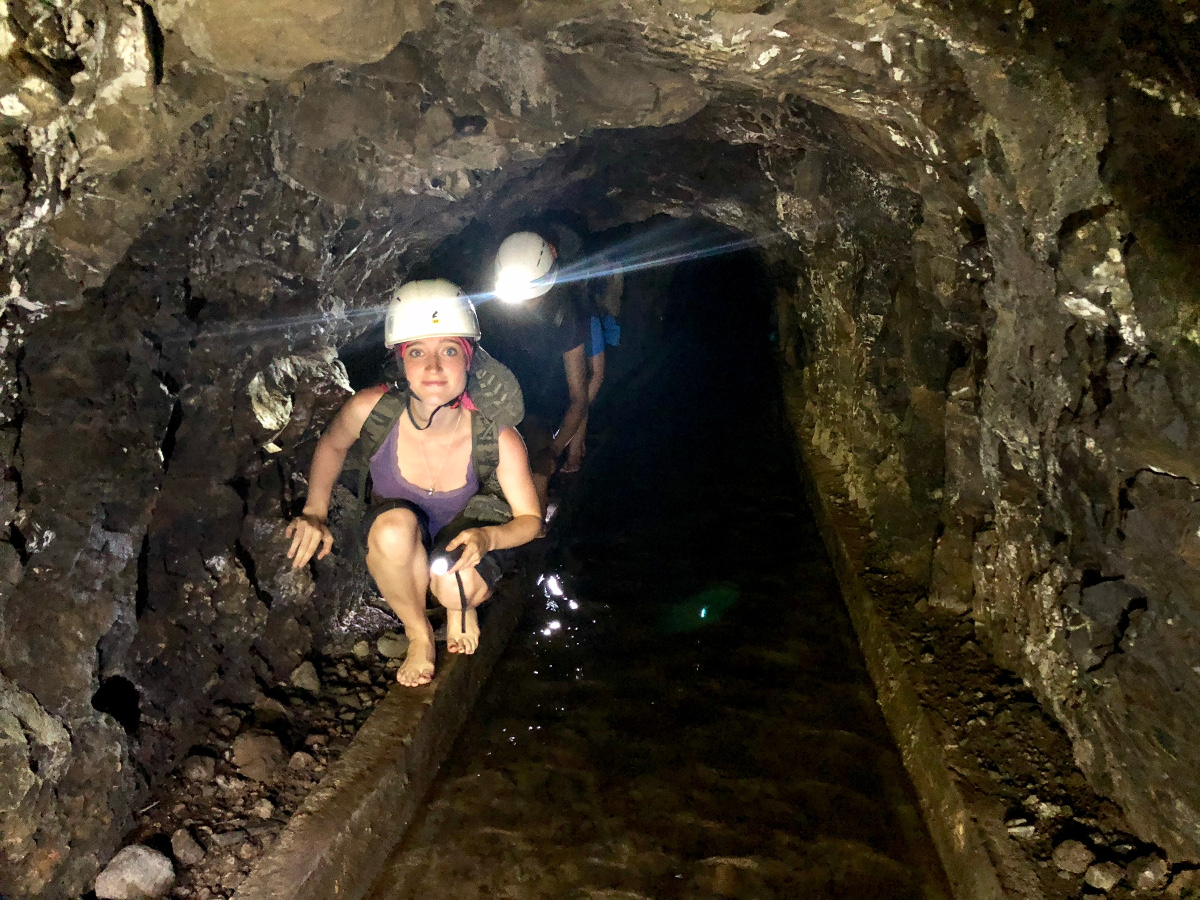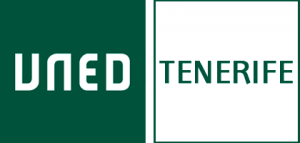Our 4th annual hydrology field training camp (HydroCamp) in association with
- ULL (La Laguna University)
- FGULL (La Laguna University Foundation)
- Cabildo de Tenerife (Environment Department of the island government)
is now open for applications.
Our two-week GeoTenerife field camp is divided into three segments and will earn two ECTS credits from La Laguna University:
- The central element of the camp (academic content and practical work at their laboratory) is run by the Chemical Engineering Department of the local university.
- The second segment is work experience (maintenance and water sampling) in a natural wastewater installation.
- The third segment is offered by GeoTenerife with parallel visits and activities related to hydrology and physical geography (technical and eco excursions and lectures from complementary experts at partner institutions)
WHAT YOU’LL LEARN
The main body of the course is the laboratory work that will be carried out at the Department of Chemical Engineering at the La Laguna University under the instruction of a team of three Chemical Engineering Professors, one PhD Postdoctoral Researcher, an MSc Laboratory Technical Supervisor and an MSc Laboratory Technician.
You will learn to operate laboratory equipment for physical-chemical analysis of water:
- pH-meter
- electrical conductivity meter
- titration equipment for alkalinity determination
- spectrophotometer for the determination of chemical oxygen demand (COD) and other water compounds
- ionic chromatography for anionic and cationic determination
- jar-test equipment for coagulation-flocculation essays
- laboratory scale membrane units for water filtration.
You will also analyse 20 water samples you will collect from different sources:
- 3 from a groundwater desalination plant
- 3 from a seawater desalination plant
- 3 from a reclaimed water desalination plant
- 3 from a wastewater reclamation plant
- 2 tap water samples
- 6 from lab scale units.
In order to do so, you will visit the main water and wastewater treatment facilities of Tenerife, toured and instructed by their in-house chief engineers:
- groundwater desalination plant
- seawater desalination plant
- wastewater reclamation plant
- wastewater regeneration and reuse system.
You will need to complete all of the above and a final written assessment in order to qualify for the two credits this programme offers.
The programme is supplemented with experience carrying out maintenance and water sampling in a natural wastewater installation.
In addition, there are a range of parallel activities and visits organised by GeoTenerife. You will have private visits led by experts and custom designed for this course of the following:
- water channels, some of them underground
- a horizontal rain capture installation (water from clouds or “agua de niebla” – a pure water source)
- the laboratories of a local volcanic water bottling plant
- a leachate treatment plant
- an introductory geographical tour around the island through the dramatic volcanic landscapes of Tenerife.
Tenerife is a privileged location for a field training camp of this nature. This beautiful island is a recognised as a unique biodiversity hotspot in the world, with the best weather on the planet.
The lack of natural waterways in Tenerife historically forced the locals to find other ways to access their sole supply of fresh water deep underground – an aquifer under Teide volcano. Like Hawaii, its extraordinary geography threw up particular challenges for water capture and supply.
At first they painstakingly carved wells and underground tunnels through the volcanic rock, puncturing the island for up to 6km at a time. This was backbreaking work, first by hand and later with dynamite and jackhammers.
As a result Tenerife is the only territory in the world where the water supply is controlled by the individuals that own the land crossed by these water channels and tunnels. Even now, 84% of the water that is consumed in Tenerife is drawn from the aquifer and transported through this ageing infrastructure.
In recent years, massive tourism growth has hastened the need to find alternatives to just pumping water from under the volcano. Investment has been made into wastewater recovery, treatment plants and desalination plants to try to keep up with demand.
The island is also under European Union and press scrutiny, as poorly treated water dumped in the sea through submarine emissary pipes is thought to affect the overpopulated tourist beaches and coastline.
In short, an extraordinary island laboratory to study a range of water challenges.
WATER RECOVERY
Growing agricultural needs as the island develops parallel industries like aloe vera, wine and banana plantations means good quality water will quickly run out unless dramatic solutions are found. Some investment has already been made.
As groundwater and desalinated seawater are used principally for domestic, tourism and industrial use, water demand for irrigation (agricultural, golf courses, park and gardens) is met with the excess of groundwater collected in rainy periods and reclaimed wastewater.
Water recovery and reuse is a key theme of our HydroCamp course, as we investigate how this small island in the middle of the Atlantic attempts to maximise the use of its dwindling resources in the face of explosive growth in order to achieve a sustainable balance.
HYDROCAMP REQUIREMENTS
Want to apply? The course is open to university undergraduates with an interest in hydrology. You need to be available and in Tenerife for the whole two-week period.
At the successful completion of the programme and any required assessment, students can earn 2 ECTS credits from La Laguna University with recognition of all lab and field skills learnt. Students who do not undertake or successfully pass the assessment will not qualify for the credits on offer.
Want to see how previous students got on?
See their Tweets on our dedicated Twitter account @HydroCamp.
COST
The cost of the field camp is £650 (GBP).
This cost includes:
- shared half board accommodation at our field trip centre with swimming pool, communal areas, kitchen and WIFI for 14 nights (includes continental breakfast and 2-course supper).
- transfers to/from the airport on arrival and departure
- transfers to your changing daily workplace and the University
- all lectures, teaching, excursions, work placement and training, including 18 hours of laboratory work
- bilingual GeoTenerife field coordinator on hand throughout to accompany and support
Flights to/from Tenerife and food are NOT included and are your responsibility to book and pay for. You are free to arrive at either the north or south airport – we will meet you on arrival and take you to your accommodation.
We ask that you arrive, where possible, no later than 20:00 on 5 September 2020, ready for transfer to your accommodation, welcome talk and introductory tour the following day.
APPLICATION PROCESS
To apply:
Click on APPLY NOW below and fill in the application form.
We will submit your application to the university for acceptance, and will be in touch with their decision. If accepted, we will invoice you for a 20% deposit and your place will not be secure until this has cleared. The balance falls due 12 weeks before the course starts.
There is a strict limit of 16 places on this programme.




